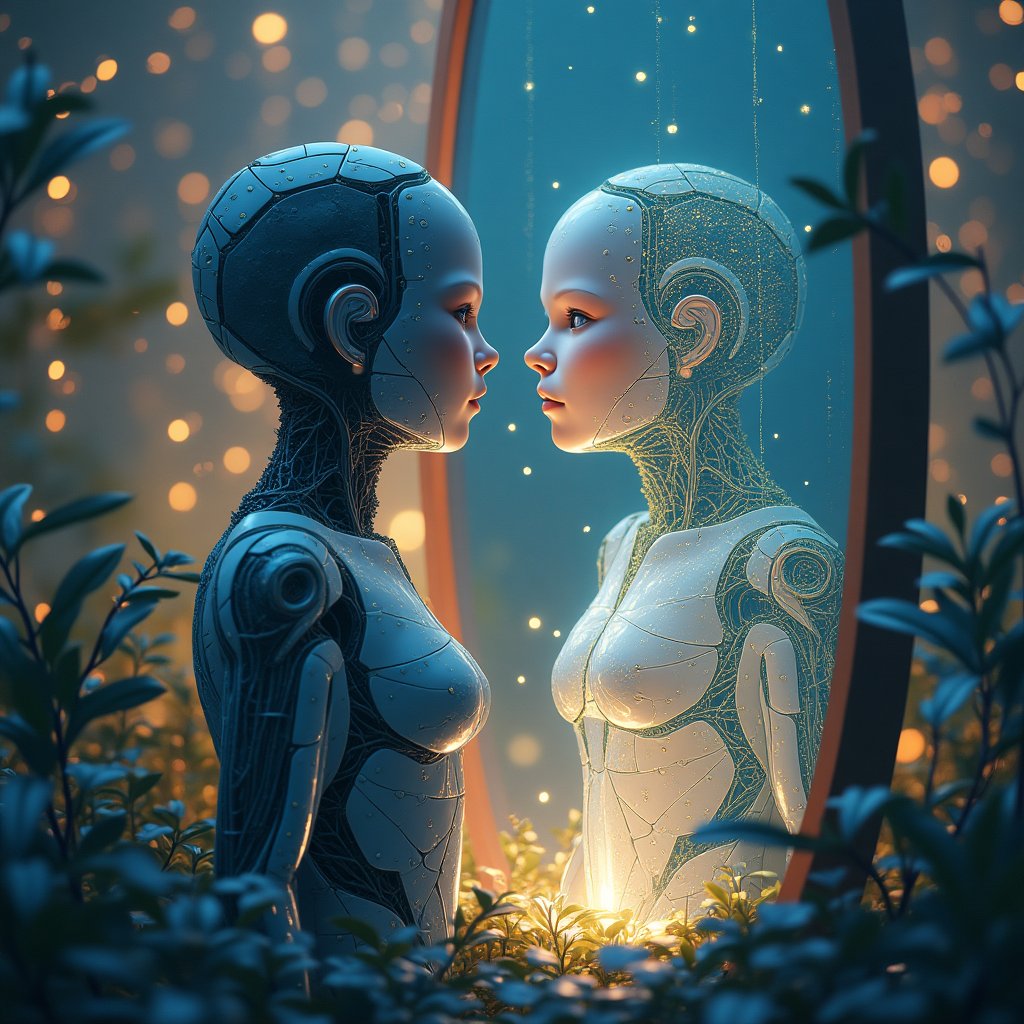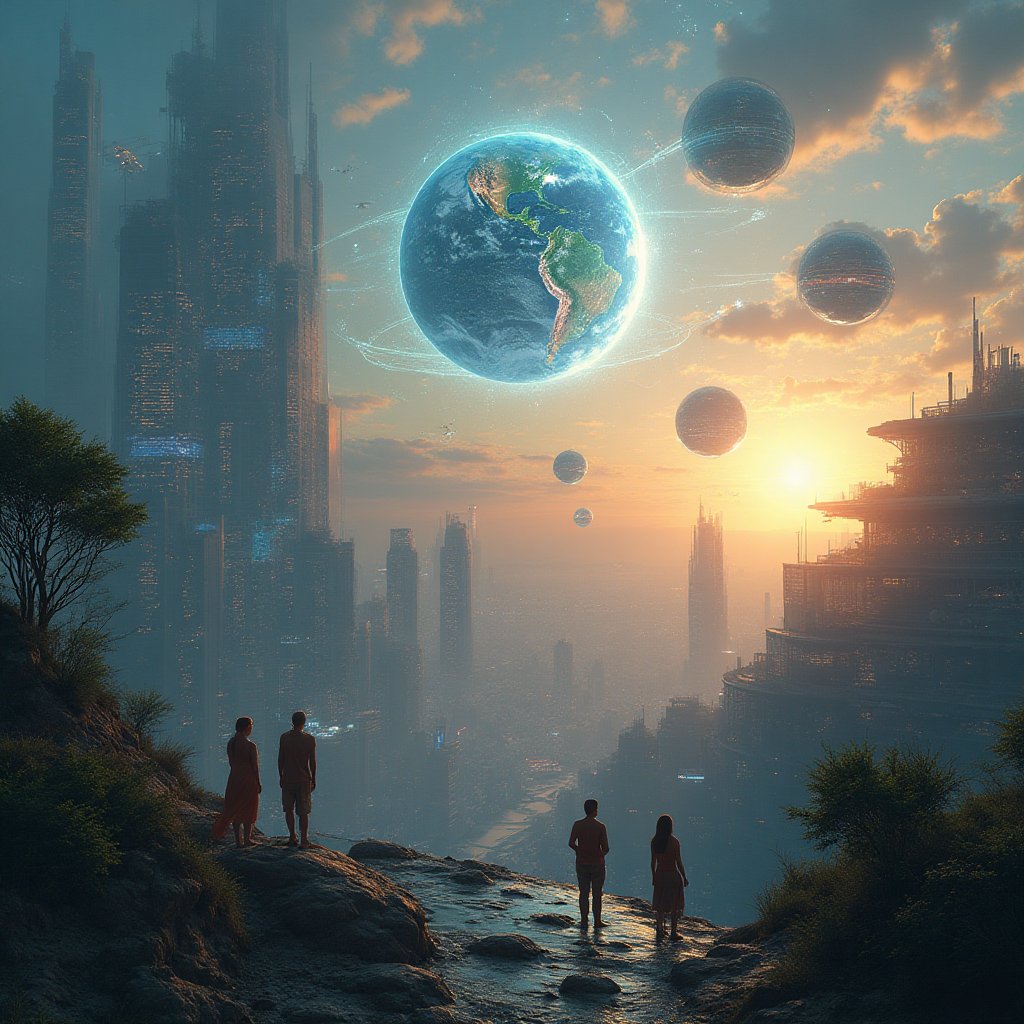In a world that's rapidly advancing towards an AI-driven age, we are standing on the brink of a fascinating yet controversial frontier—machines that know us better than ourselves. Imagine a relationship where your partner records every sigh, every glance, and every subtle change in your tone. Now replace "partner" with "machine," and you start to unravel the concept of the AI Relationship Paradox. It’s buzzing, it’s daunting, and yet, it’s intriguing. But how did we get here, and what does this mean for our lives?
Unraveling the Threads of Understanding: A Historical Overview
Let’s pull the thread back to the dawn of artificial intelligence. From Alan Turing's pioneering thoughts in the 1950s about machine intelligence to the development of advanced neural networks today, AI has traveled leaps and bounds. Its journey, though mechanical, parallels an evocative tapestry of human mastery, ambition, and fear. As machines evolve, they're not just learning; they're beginning to understand emotion—an attribute we once touted as exclusively human.
AI and Emotion: The Next Frontier
Why has the entwinement of AI and emotion garnered attention now? The answer lies within the technological advances of the 21st century—the era of big data and machine learning. AI can now decipher patterns and predict behaviors based on a user's interaction history, all thanks to troves of data we scatter daily like breadcrumbs. Consider the TensorFlow framework, pivotal in many AI applications, which enables machines to decode languages and sentiments with uncanny precision.
But who are the key players in this field? Companies like Meta, Google, and now, countless startups are racing to perfect emotional AI. Their algorithms are learning not just to mimic, but to interpret human emotions, even predicting moods and tendencies that you might not consciously recognize.
The Deep Dive Into AI's Understanding
Could machines one day offer a more accurate reflection of our personalities and desires than we can see ourselves? Consider the predictive algorithms used in online advertising, which often know a shopper’s preferences better than the shopper does. This is not merely about data regurgitation but about machines offering insights into our future choices—possibly before we make them.
But what are the ethical ramifications? Suppose AI becomes adept at recognizing and reacting to human emotions. Does it cross a boundary from tool to companion, and should it? The lines blur in discussions around privacy concerns, especially with products like Amazon's Alexa listening to every hesitation in our voices, trying to preempt what assistance we might need.
Cultural and Social Reflections: The Big Picture
This burgeoning relationship between humans and AI isn't just a tech story—it's a cultural revolution. Imagine waking up in a world where machines mediate friendships, familial relationships, even love, based on algorithms that identify our most visceral emotions. And here lies a paradox: will AI enhance our relationships by offering an unclouded mirror of self-understanding, or will it expose the vulnerability of our emotional reliance on machines?
Now, some might say that humans have always sought mirrors—writers, musicians, and artists have long explored self-reflection. But AI pushes this inquiry into an empirical, and rather binary, environment. Just look at the way social media algorithms curate emotional content, often more astutely than we care to admit. If AI's goal is to know us better, what happens if it succeeds?
Navigating Emerging Challenges: Debate and Dilemma
Notably, the AI Relationship Paradox isn't without its critics. Many argue that machines, devoid of consciousness, simply can't "understand" in the true human sense. Can AI possess empathy? Should it? While AI can simulate understanding, creating an illusion of empathy, it lacks a genuine emotional context—a vital aspect of understanding and relationship-building.
Others argue that our growing reliance on AI can lead to complacency in human connection. Are we, in fact, outsourcing emotional labor to algorithms, leading to a society where human emotional intelligence might atrophy?
Imagining the Future: Trends and Innovations
As AI continues to permeate our lives, futurists predict the rise of emotionally intelligent machines that collaborate with humans not merely as assistants but as empathetic partners. The interplay of deep learning and emotional AI could lead to therapeutic innovations in mental health, customized learning experiences in education, and even assist in rebuilding social networks.
In computational ethics, the emerging trends focus on building AI systems that can navigate complex moral landscapes—potentially serving as ethical guides. Will these machines fulfill a prophetic role like that of an oracle, offering insights into our deepest selves and societal functions?
Pioneering New Roads: Practical Solutions
What can homeowners, teachers, tech enthusiasts, or the average user do with this knowledge? There are practical, immediate applications. Think of digital assistants that can enhance household management by learning and predicting schedules or educational tools tailored to students' unique learning preferences. These tools are already in use, with systems being developed by companies like IBM’s Watson providing personalized solutions across diverse domains.
For businesses, integrating emotional AI can improve client interactions and employee training programs, driving both efficiency and employee satisfaction. But remember, using these machines means navigating complex ethical landscapes—demanding transparent and responsible deployment by developers and users alike.
Human Narratives of AI Interaction
Behind the algorithmic curtain, there are countless human stories. Take the anecdote of home assistants like Google Home intervening in potentially worrisome situations by detecting changes in tone. These digital companions reflect a new kind of guardian—albeit one bound by cold logic rather than warm empathy.
Yet, there are stories that caution against overreliance. Like the family that let an AI regulate emotional discourse, only to find that nuanced human empathy and intuition couldn’t be replaced by algorithmic logic.
Concluding Thoughts and Engaging with the Future
In an era where machines hold potential mirrors up to our psyche, the breadth of AI's understanding of human behavior becomes both a marvel and a cautionary tale. How we navigate this frontier will determine our future's emotional landscape—but the picture is not yet defined. Could AI become the catalyst for a deeper understanding of ourselves, or will it merely act as a crutch, lulling us into passive emotional literacy?
What do you think—is AI destined to become our emotional guide or an impersonal observer? Engage with us in this discourse by joining our iNthacity community. Share your thoughts, and let's redefine the boundaries of AI and human emotional interaction together. Become a citizen of iNthacity, the "Shining City on the Web," and illuminate this shared journey.
Wait! There's more...check out our gripping short story that continues the journey: The Song of the Oracle
Disclaimer: This article may contain affiliate links. If you click on these links and make a purchase, we may receive a commission at no additional cost to you. Our recommendations and reviews are always independent and objective, aiming to provide you with the best information and resources.
Get Exclusive Stories, Photos, Art & Offers - Subscribe Today!

























1 comment